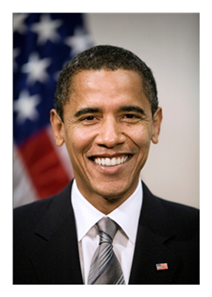Last January, Susan Cain, author of “Quiet: The Power of Introverts in a World That Can’t Stop Talking,” wrote a short piece in Time. In the article, she addresses differences in children that lead to misunderstanding the introvert, while favoring the extrovert.
 We tend to feel better about the outgoing child, more comfortable with kids who are chatty and open (because it’s easier?), whereas the introverted child may lay back or seem distant. He is no less confident, but he considers his options with a nature that is more apt to deliberate, and less likely to leap before looking.
We tend to feel better about the outgoing child, more comfortable with kids who are chatty and open (because it’s easier?), whereas the introverted child may lay back or seem distant. He is no less confident, but he considers his options with a nature that is more apt to deliberate, and less likely to leap before looking.
In this week’s Sunday New York Times, Susan Cain offers an opinion piece on leadership, contrasting President Obama with former President Bill Clinton, and noting that while “schmooze” may make Americans comfortable in the short term, it isn’t the key to effective leadership.
We could debate the pros and cons of social skills as essential to success in any field, and how that differs from the nitty gritty of leadership skills which might include
- a mastery of big picture and cogent details
- astute judgment when it comes to people and issues
- exceptional communication skills
- exceptional negotiation skills
- determination tempered with flexibility
- and of course – vision, and the ability to sell it.
I’m not proclaiming this to be an all-inclusive list, but might we agree it’s close enough for government work?
Judging Leaders by Personality Type
 At the Democratic National Convention, we observed the stylistic differences in President Obama and former President Clinton. But then, President Obama’s personality type – according to those who know him well – is that of an introvert, not an extrovert like Mr. Clinton.
At the Democratic National Convention, we observed the stylistic differences in President Obama and former President Clinton. But then, President Obama’s personality type – according to those who know him well – is that of an introvert, not an extrovert like Mr. Clinton.
To Ms. Cain’s point, the extrovert may be easier to get along with, the buddy we want to have a beer with, but that doesn’t guarantee the necessary substance to “get the job done” – whatever the job may be. And note, that is not an indictment of the extrovert or his talents.
But the introvert is far from unskilled socially, though he likely prefers a small circle of intimates, and to exercise his or her own judgment, including insisting on a thorough understanding of the issues at hand.
In the Times article Ms. Cain writes:
Culturally, we tend to associate leadership with extroversion and attach less importance to judgment, vision and mettle. We prize leaders who are eager talkers over those who have something to say…
And when referring to the presidency, she points out that the introvert possesses:
… an innate caution that may be more valuable than we realize.
Ultimately, Ms. Cain challenges us to set aside the prejudice that extroverts are better leaders, and she reminds us that both President Obama and Mitt Romney have been criticized for their introversion. I will add – yes, I’m editorializing – that Mr. Obama, from all accounts, exhibits greater warmth and empathy with a wide range of diverse individuals and groups.
Defining Leadership
As a parent in our contemporary “success culture,” I observed the emphasis on leadership in our school system. It starts early, and may be more closely linked to opportunity than we realize.
Children are quickly labeled as shy or outgoing – often mistakenly, according to Ms. Cain who clarifies:
Shyness and introversion are not the same thing. Shy people fear negative judgment, while introverts simply prefer less stimulation; shyness is inherently painful, and introversion is not.
In my own experience, the introverted child may be deemed as lagging behind (when he or she is exercising caution and consideration), while the bolder child is encouraged, praised and advanced – as long as he or she isn’t challenging authority.
 Having raised two exceptionally bright little boys who got along well but couldn’t have been more different – one gregarious (extroverted) and the other, quiet (introverted) – they were constantly compared, and I was needled for several years to find out what was “wrong” with my less outgoing son.
Having raised two exceptionally bright little boys who got along well but couldn’t have been more different – one gregarious (extroverted) and the other, quiet (introverted) – they were constantly compared, and I was needled for several years to find out what was “wrong” with my less outgoing son.
The fact is, nothing was wrong with him; he was happy, he kept his own counsel, he taught himself to read, he drew, he cartooned, he created.
Over the course of their school years, my extrovert won prizes and garnered opportunities – in part because he had the gift of gab as well as the goods to back it up – and also, he sought the spotlight whereas his brother did not. My younger son became more sociable in his own time, cultivated a close circle of friends, and distinguished himself through artistic means, achieving academically as well.
The Leadership Trap and College Expectations
When it came time for my younger son’s college application process – the tedious compilation of a high school “resume” along with transcripts, awards, recommendations, portfolios, essays, test scores – one of the standard forms required enumerating his “leadership positions.” Leadership as defined by president of this, captain of that.
At the time we were both concerned, and I asked myself if everyone must be a leader to succeed, knowing full well that society needs people who actually execute and get work done. We also need poets, musicians, artists, scientists, dreamers – those whose vision enriches our lives, but rarely is recognized as such.
My son’s contributions didn’t conform to traditional leadership expectations, which makes me question our one-note definitions of leadership itself, as well as leadership styles that vary with personality types.
As for my younger son, his creative vision and its work product landed him in an outstanding school in a highly competitive program, no doubt surrounded by others who value imagination, creativity, and don’t fall into easy classification.
Form Over Substance?
 In this country, we often take the easy way out. We’re seduced by the appeal of form over substance. The extroverted leader often benefits from this tendency.
In this country, we often take the easy way out. We’re seduced by the appeal of form over substance. The extroverted leader often benefits from this tendency.
But the loudest voice, the sound bite, the scare tactic, and the quick fix yield temporary solutions, or none at all. Our relationships, our family lives, our communities – not to mention our social, economic, and political institutions – accomplish little without thoughtful perspectives and long term timelines.
Form is not to be dismissed; it can be aspirational or inspirational. But substance is non-negotiable.
In my own political leanings, as in everything in my life, I am focusing on substance, keenly aware of the choice to be made in November.
And in that light, I repeat my own words on leadership from two years ago:
Is the designation of “leader” a matter of the title? The loudness of the voice or its clarity? The number who hear its message?
Should “leadership” be applied more liberally… and interpreted in a more fluid context less tied to style but no less powerful in its reach? And what about moral leadership – so vital to the quality of our lives and our future?
Image of President Obama from Wikimedia, The Obama-Biden Transition Project, licensed under Creative Commons 3.0.
Great piece and so true!
Dearest D
What a thoughtful piece.
So glad that both your sons received you as a mother – a person who clearly appreciates both leaders and artists for yes, if all we had were leaders, who would provide the magical visions of art?
We’ve been both. At different times. And now it’s time – soon – for something new. But not to lead others for a while. Someone else can do that.
Waving from manhattan
_tg x
I’m so sick of hearing the hype about leadership. At my institution there are a multitude of courses and programs teaching leadership. But they are not generating what I consider real leaders, but simply the advance guard of followers of the dominant culture. It’s Lake Wobegon – where all the children are above average and all are leaders.
The quiet folks are indeed often disregarded in this country, where we generally value aggressiveness more than thoughtfulness. Of course, we then reap what we sow.
“… The advance guard of followers of the dominant culture.” Well said. (You have an interesting vantage point on the next generation, Paul.)
Extrovert schmextrovert. It’s more complex than that. I put a lot of stock in Myers Briggs. Here. Ever taken the test?
I heard so much about leadership development at work I wondered who was ever going to do the work if we were all supposed to be leaders. It’s another one of those crazy things I’m glad to be shed of.
I hear you, Shelley.
I am with Wolf – love the Myers Briggs test!
Cain’s book finally arrived yesterday from the library waiting list and I downloaded it minutes ago. It’s not my favorite type of reading, but I am going to check it out.
I always thought I was an extrovert until I took the Myers Briggs and was stunned (but it all made complete sense) to find I was truly an introvert. The article you suggested in Time magazine really hit home with my two boys. Thanks for pointing me in that direction.
Great article.
Great post. An introvert here, in the middle of a family of extroverts. Except my father. But we were both so in our own worlds it took adulthood to realize it. So nice to read your appreciation and understanding of both your sons. And yes – we need all kinds and so many different contributors to society.
I don’t think I’ve ever taken the MB test – will go check it out.